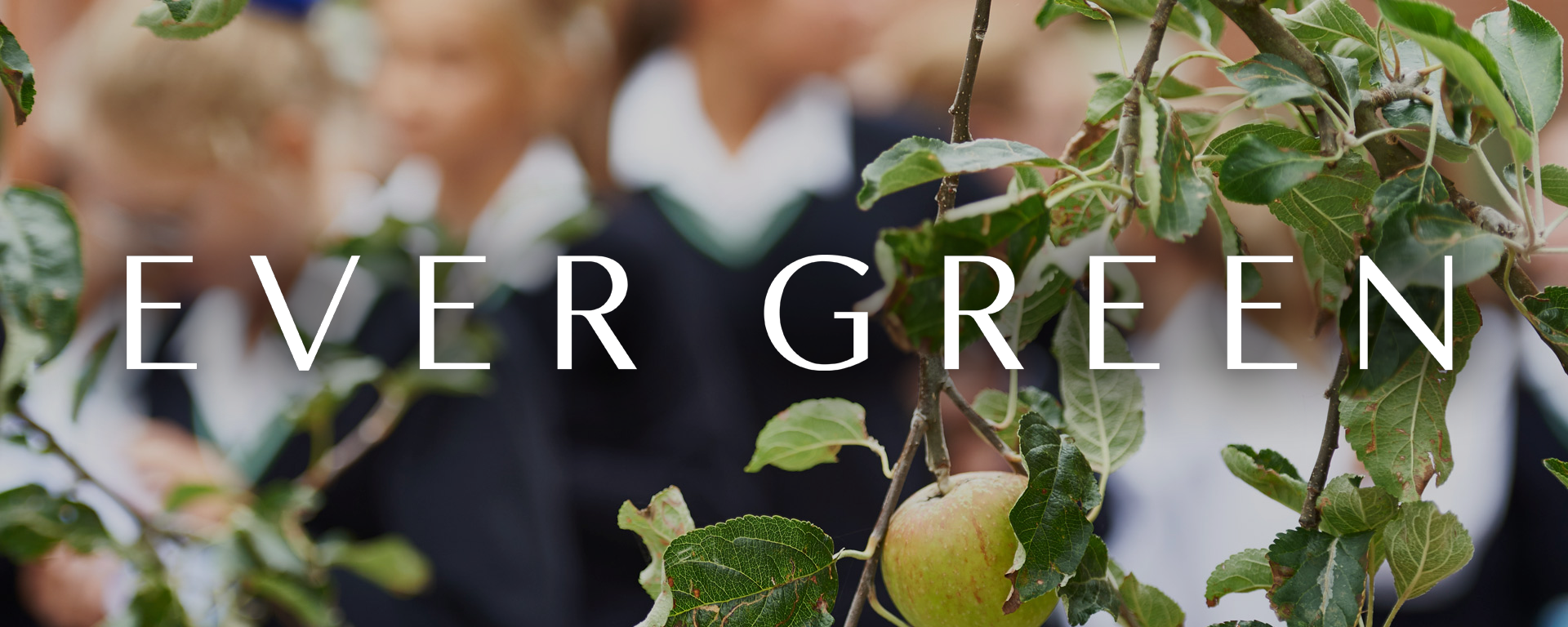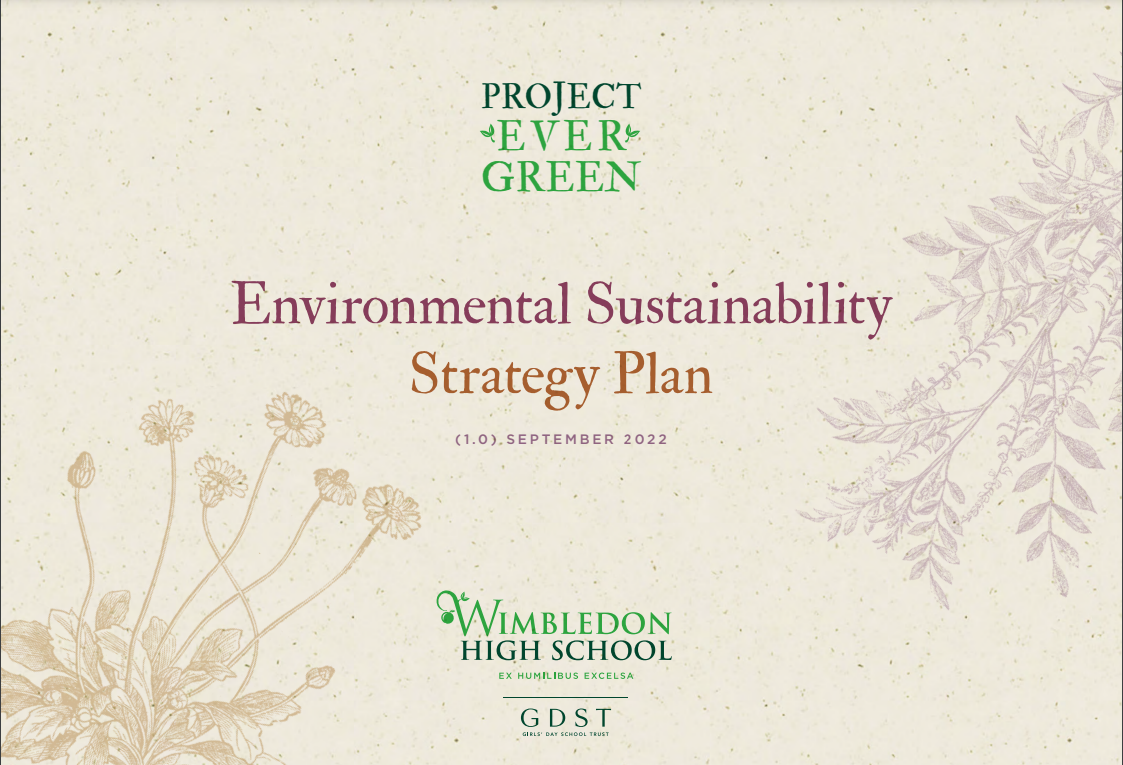Project Ever Green – An exclusive interview
Considering our recently launched school sustainability strategy, Project Ever Green, Ava (year 12) and Alex (year 11) interviewed Mrs Evans about the inspiration, issues, and changes found while planning and writing the document.
What inspired the school to start the initiative to create the sustainable strategy document?
“The whole process started back in 2019, when the climate strikes and demonstrations took place. We were hearing from the student body that this is something that you all really cared about – so we began to think initially as a group of staff, students, and parents about what we could do. Then when lockdown hit it demonstrated how human behaviour effects carbon emissions so strongly. This drove us even more to take action.”
“The sustainability document we published is the culmination of a lot of effort on the part of many parties – both the senior and junior school alike contributed to lists of things that we could pay attention to, and the strategy document is the outcome of that.”
You spoke about how the strategy included a lot of student, staff and parent involvement. What steps should we take to involve ourselves more?
“Everyone has different roles to play! From now on the role of parents is to be involved in supporting you as students which takes all sorts of different forms. We received great advice from parents who were involved in sustainability in their own work, for instance auditing our emissions.”
“Within school, some of us have responsibilities in our roles as staff. For instance, Mrs Jones, our Director of Finance and Operations, is paying attention to energy consumption and buildings as no student is able to renegotiate our recycling contract! However, some staff are involved just because they want to be as they have a passion for it!”
“Then from the student side, it could be for personal actions but overall it will be working with the school strategy. We might come to you to ask for your help with particular ideas or activities we want to try.”
The sustainability strategy document is a very comprehensive list. We want to know what the steps you took to evaluate sustainability issues in school.
“Our ten areas were set out in the draft and everyone on the committee took responsibility for one area. We then looked at what we were doing already or had done in the past. However, for other parts we were starting from scratch – we would audit a certain area, then focus on the next steps.”
“The biggest challenge was to decide which of those steps were the most impactful; That’s why we have the three-time frames (immediate, short term, long term). Some changes can’t happen overnight like installing solar panels as they need approval by the GDST. Other things, like discouraging buying fast fashion and swapping clothes instead are easier. We start that tomorrow.”
What was the most surprising thing you found out about the sustainability of WHS?
“I was horrified by our energy usage – I couldn’t believe how high it was! While some of it was due to our buildings being old, it was mostly due to our behaviour. We will need to take steps to quickly change this.”
Speaking of behaviour, what have we as a school community most improved environmentally?
“I know that there have been big changes in transport. Looking at past Big Walk and Wheel survey data, the number of students taking active transport to school has increased. This is a result of raising awareness of the better way to travel.”
“Another thing that we have got more awareness of is waste management and recycling. I believe we have the right awareness, but we haven’t found the right ways to turn that into actions yet. Moving forward that is an area I would like to focus on”
What actions do you think people could take? Not only as students but staff, parents, and the wider Wimbledon community. What can we do to become more sustainable?
“Reducing our energy consumption is the most important thing anyone can do -it’s a huge part of our carbon footprint. As a community, simply turning down the heating at home or school will make a big impact.”
“Other actions can be more personal choices. Things like if you fly to go on holiday, how many times do you take big trips? If you travel across the UK or even Europe, can you take the train instead of a car?”
“Eating less meat – you don’t have to become a vegetarian but at school try to limit the number of meat-based meals you eat. And other things like reusing/repurposing; stop buying new and try to repair or upcycle old belongings.”
What are your hopes for the future of the sustainability strategy plan and Wimbledon’s green transition?
“I hope that this document is going to be a clear signal that sustainability is important. We are putting this out in public to the whole community on our website – to show we think this is a priority.”
“What I hope then is that people will take our strategy seriously and take action. Everyone in school who wants to get involved could pick one of those actions and focus on it. Increasing student voices and leadership in this area will really make a change.”

